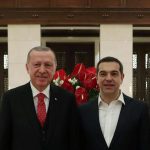Turkish authorities banned a Kurdish theatre event in the southern city of Adana on the grounds that it represented a security threat, Bianet reported on Sunday.
The event, Kurdish Theatre Days, had been scheduled to run Feb. 10-13. It was organised by the pro-Kurdish Peoples’ Democratic Party (HDP). Scores of the party’s parliamentarians and mayors have been jailed on terrorism charges, while HDP-run city councils were replaced by government-appointed administrators.
“Adana Governorate has prohibited our plays from being staged on the ground of ‘taking measures to ensure serenity and security, immunity of individuals and public well-being.’ Are we surprised? Of course not,” said actor Özcan Ateş from Diyarbakır City Theatre, which had planned to stage a play in the event.
“A veiled censorship is being applied to the Kurdish theatre. There is a negative attitude against not just the Kurdish theatre, but all producers of alternative art,” the actor said.
“People organising events in their own languages and cultures are being forbidden, when they should be promoted. Are Moliere’s, Brecht’s plays more dangerous when they are staged in Kurdish? Or has the event been banned because it is organised by the HDP?” Ateş asked.
Kurdish language and culture have been criminalised off and on since the earliest years of the Turkish Republic.
In 2012, hoping to charm Kurdish voters, the ruling Justice and Development Party (AKP) began granting greater freedoms to the Kurdish language. For the first time in the country’s history, Turkish authorities legalised Kurdish as an elective course in high schools.
In 2014, the foundation of private minority-language schools was allowed. But since the mid-2015 breakdown of the peace process between Turkey and the Kurdish militia fighting an insurgency in the country’s southeast, the repression has returned. Countless Kurdish media organisations, associations, language schools, and cultural institutions have been shut down.
Source: Ahval News



